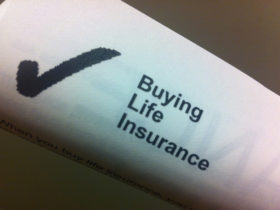Having adequate home insurance can be an invaluable safety net when the unexpected happens. Insurance policies can protect against financial losses when an accident, theft or a disaster occurs. Most people recognize the value of having adequate insurance, but high premiums can be a problem. There are some ways you can reduce your home insurance premiums without affecting your level of cover.
- Calculate accurately how much cover you need. Many people simply guess the amount of cover they want, and end up paying unnecessarily high premiums. You need to work out how much it would cost you to replace everything in your home. You also need to calculate how much it would cost to rebuild your home.
Finally, calculate how much it would cost to demolish the existing building, and to prepare the site for a new build. This situation could arise if you had a fire, for example, which left your home in an unstable condition.
Many insurance companies and brokers can provide you with check lists to help you work out all these figures.
-
Insurance companies need to compete with each other to attract new business or retain existing customers. When your insurance is due for renewal, get quotes from companies other than the one you are already insured with. Sticking with the same company may be more convenient, but spending a little time to shop around can save you money. However, when you compare the offerings from various companies, you need to look closely at the fine print. Companies with low premiums may be offering a reduced level of cover.
-
While you can easily arrange your own insurance policy, it may be worthwhile talking to a broker. Brokers get paid by the insurance companies, so using a broker does not cost you anything. Their specialist knowledge of the insurance market can often bring savings to their customers. Brokers can also offer excellent advice on the amount of cover you should be looking for.
-
You can get lower premiums by increasing your deductible, or excess, level. The deductible, or excess, is the amount of any claim that you undertake to cover yourself. If you have a deductible of $500, and you submit a claim for $700, then the insurance company will have to pay out just $200.
-
While your policy will cover you for damage and theft, you should think carefully before submitting a claim. Making a claim will result in higher future premiums. You may also find that you cannot switch insurance companies in the future because you have had a claim. It may be better to pay for repairs or replacements out of your own pocket rather than claim on your insurance policy.
-
You can get a discount on premiums if your home has state-of-the-art safety and anti-theft devices fitted. Before installing any new security features, ask your insurance company or broker for a list of approved devices. Insurance companies may also insist that your security systems are installed by approved firms if they are to qualify for discounts.
-
Check whether you can get reduced premiums by buying all your insurance policies from the same company. Buying car, health, or life insurance from the company that provides your home insurance can bring savings.
-
Try to keep a good credit record. Many insurance companies will regard you as a higher risk if you have debt problems, and this results in higher premiums.
















